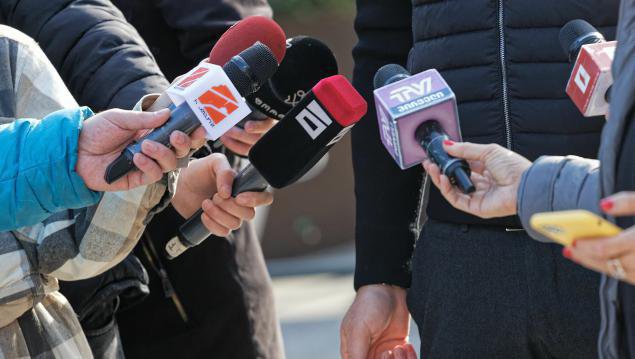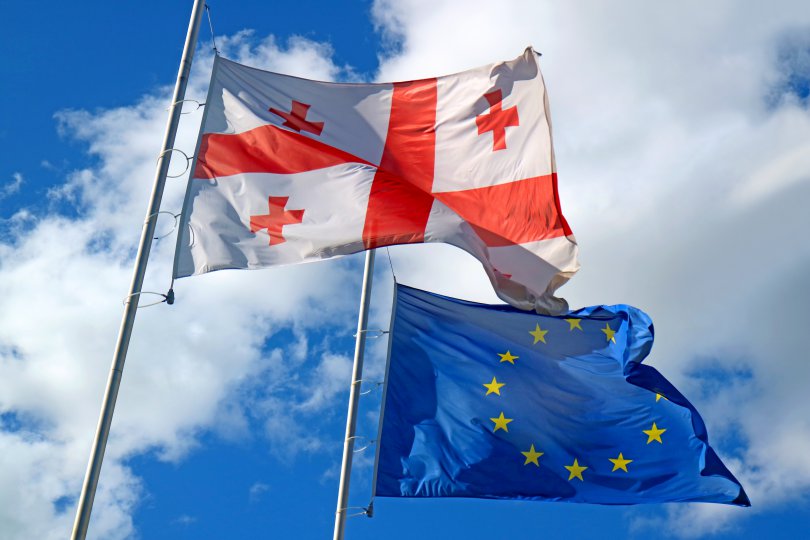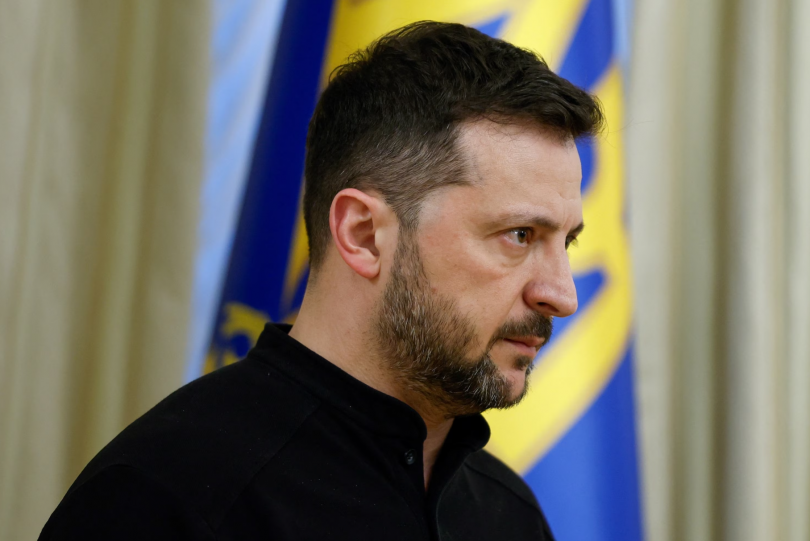
A new report titled "2024: The Struggle Against Political Pressure, Disinformation, and the Erosion of Media Independence" has highlighted a significant decline in press freedom in Georgia. The report, prepared by the Journalists' Safety Platform with the support of the Council of Europe, dedicates a section to Georgia under the heading "Sharp Decline in Press Freedom in Georgia." The annual report assesses the state of press freedom across Europe in 2024 but does not include events from 2025, such as the repressive legislative changes targeting independent media introduced by the ruling Georgian Dream party or the arrest and imprisonment of journalist Mzia Amaghlobeli.
Georgia is mentioned multiple times throughout the report, even before the country-specific section. Early in the report, it is noted that the situation in Georgia deteriorated “significantly and rapidly in 2024 compared to previous years,” particularly evident during pro-European protests, when journalists faced frequent attacks.
"Countries with the most alarming incidents reported on the platform this year included Ukraine (40 cases), where most incidents occurred in Russian-occupied territories or involved Russian armed forces; Russia (32), Turkey (28), Serbia (20), and Georgia (18)," the report states. In the context of hybrid warfare, the report highlights that Russian networks and government-affiliated media in Georgia spread disinformation and conspiracy theories during the October elections to discredit pro-European groups. Georgia is singled out as a particularly problematic country where police violently targeted journalists. Dozens of journalists were injured or arrested while performing their professional duties.
"In 2024, Georgia recorded the sharpest increase in alarming incidents related to press freedom among all Council of Europe member states. This underscores the severe deterioration of media freedom, distancing the country from democratic principles and hindering its EU integration," the report states. A fact-finding mission conducted in October 2024 by partner organizations concluded that press freedom in Georgia is under severe threat due to increasing authoritarianism. The mission documented a range of tactics aimed at discrediting and silencing independent voices, particularly journalists.
The report also mentions that during the pre-election period, Georgia's Communications Commission fined several opposition television channels, including Mtavari TV, for refusing to broadcast government-backed propaganda ads featuring war-torn Ukraine. "On election day, at least 70 journalists were subjected to verbal and physical attacks, intimidation, and obstruction of their work," the report states. Following the elections, mass protests erupted across the country in response to Prime Minister Irakli Kobakhidze's statement about halting Georgia's European integration efforts. The protests saw an increase in violence against journalists, similar to the treatment of demonstrators, with police using tear gas and water cannons. Over 90 journalists became targets of law enforcement, facing both physical and verbal attacks, and in many cases, their equipment was confiscated or destroyed. "Journalists most frequently targeted by the police were those working for independent and critical media outlets," the report notes.
The report also addresses legislative changes aimed at restricting and intimidating the media, including the so-called Russian law that limits freedom of expression and the operation of independent media, as well as the introduction of a homophobic law under the guise of protecting family values, which imposes censorship on media, advertising, artistic works, and public events. "Georgia, once considered a safe haven for exiled journalists, has become an increasingly dangerous place. Azerbaijani journalist Afgan Sadigov was arrested in November 2024 and faced extradition to Azerbaijan. More frequently, journalists are being denied entry into the country. Recent cases include Czech journalist Rey Beseli, Belarusian journalist Andrei Mialeshka, Armenian journalist Arsen Kharatyan, and photojournalist Stephan Goss," the report states.
The overview of press freedom in Georgia concludes that legal and physical intimidation tactics used by authorities, combined with legislative changes mirroring authoritarian regimes, have created a hostile environment for independent journalism.





